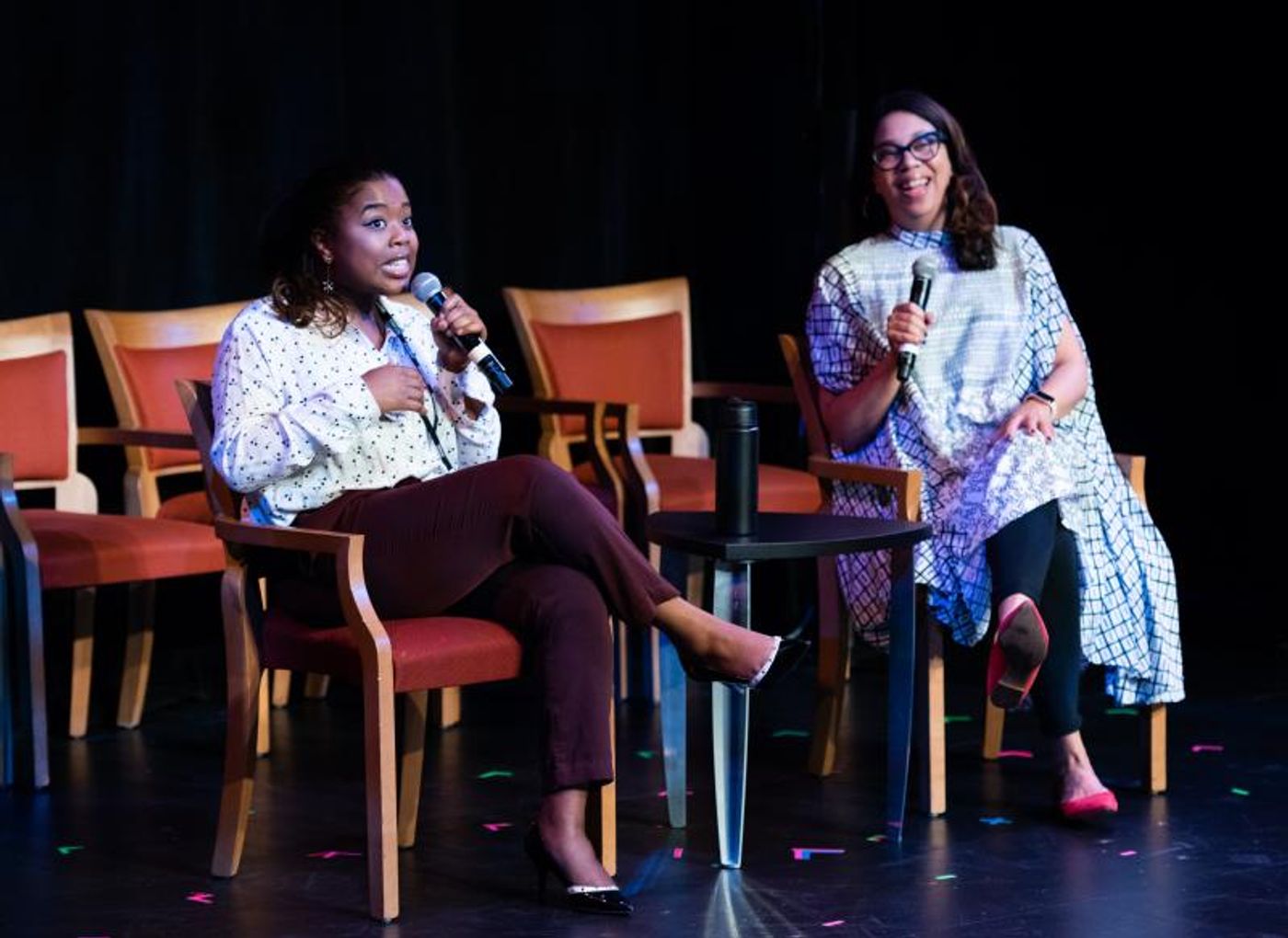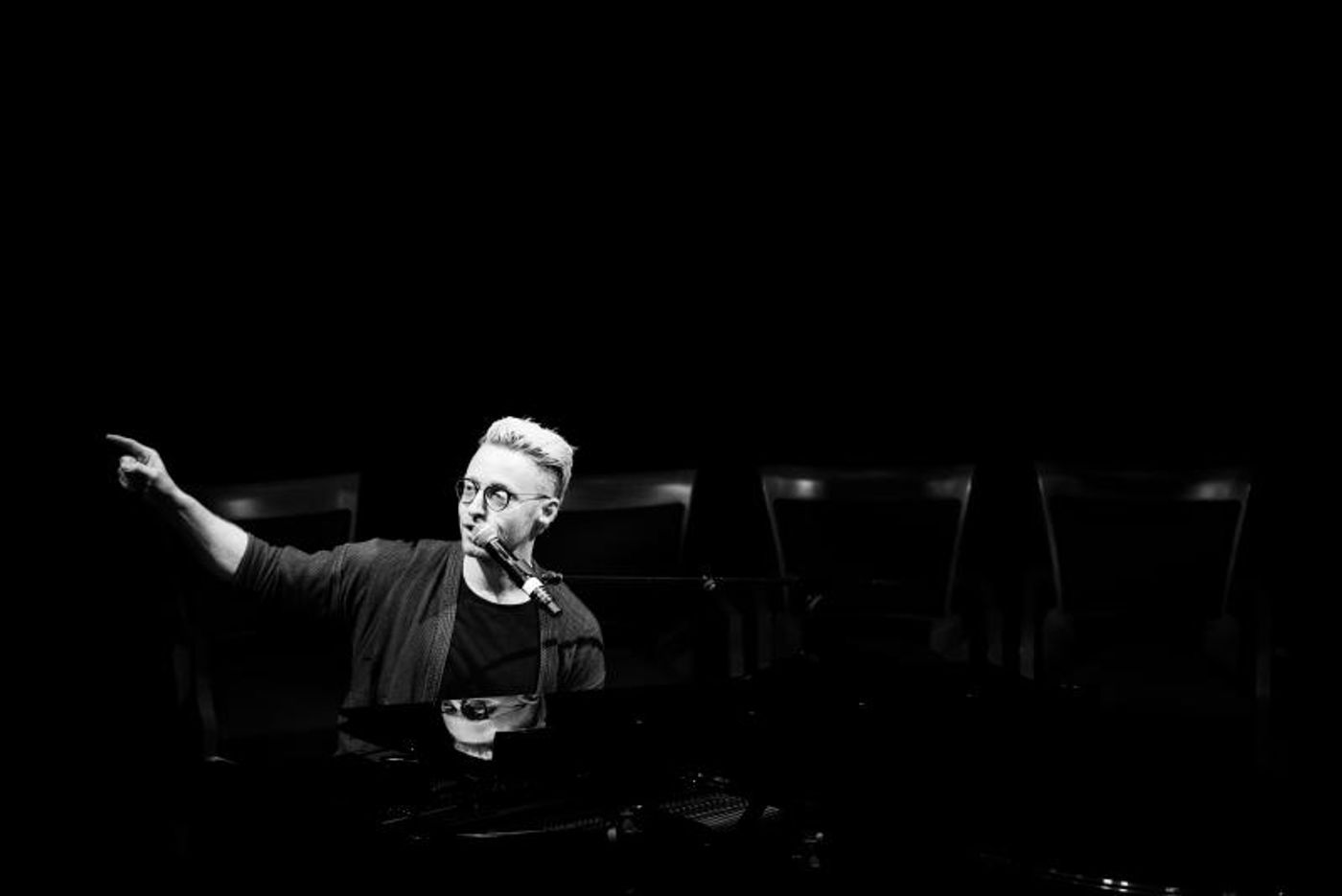Feature: 2018 ARTS SUMMIT Looks to the Future States of America and Asks Where We Want to Go

Photo by Michael Butcher.
The John F. Kennedy Center for the Performing Arts can be called a lot of things: enormous, vital, intimidating... the list can go on for a while. But the most crucial descriptor which Kennedy Center leadership is looking to cement is ambitious. Convening for the fifth year in a row, the 2018 Kennedy Center Arts Summit, titled The Future States of America: Using the Arts to Take Us Where We Want to Go, served as a reminder for how far artistic advocacy has come. The day also served as a sobering reminder of just how far the arts have to go.
As Kennedy Center President Deborah Rutter noted in her opening remarks: "it is important to pause and take stock of ideas for the arts and society." The Arts Summit covered a bevy of topics ranging from access to art for underserved populations to emphasizing health and wellness in communities by using artistic expression. Simultaneously, this event served as an introduction to the Kennedy Center's incoming class of Citizen Artist Fellows, a curated class of artists hailing from all over the nation whose artistic practices aim to create positive impacts in society.
Reaching said perfection is impossible since people naturally seek ways to continue innovating and building upon current practices, the Summit strives for understanding "The Adjacent Possible." Through art, we ask our lawmakers to aim higher so we can get as close, or as adjacent, to perfect as possible. Speakers and performers emphasized the idea that historical injustices can't be undone but the future can be created by a collective who ensures the same mistakes are not repeated time and time again.
The day began with a long-form dialogue amongst eight influential thought leaders in areas of arts, education and beyond. Linda Nathan (Executive Director of the Center for Artistry and Scholarship) emphasized the importance of art in the classroom whether that be as a separate form or arts integrated into subjects like math, science or literature. Angelique Power (President of The Field Foundation in Chicago) expressed how the future state will need to find new ways for artists to access capital. But Ms. Power also believes philanthropic organizations need to reexamine themselves. Her foundation underwent racial sensitivity training in an ongoing effort to transform the organization from a charity to a foundation which propels social change.

Photo by Michael Butcher.
More ideas than can be synthesized neatly were discussed at the 2018 Arts Summit, but all conversations demonstrated one thing: art is rapidly evolving from something that can critique power to something that must critique. As expressed by Bill O'Brien, Senior Advisor for Program Innovation at the National Endowment for the Arts, the arts help people consider themselves in a context larger than the individual. Ms. Power noted a similar sentiment that when you call something political you know something is at stake and when you call something art it allows you to open your mind. Moving to political art allows viewers to do both at the same time.
While difficult conversations will need to be facilitated for real change to occur, Jasmine Babers (a 22-year old publisher based in Chicago), reminded the participants of the Summit that it's important to recognize we aren't properly equipped to talk about issues such as race. Since the topic has been taboo for so long, there is trepidation when going into new conversational territory, even among people of color. Using art as a starting point allows the conversations to spur from artistic expressions and open new avenues of conversation.
John F. Kennedy himself remained a commonly-discussed figure throughout the day. Most often, his famous moonshot speech became a frame to discuss three important areas of the arts: education, finite resources and health/wellness. Discussions occurred throughout posing the questions: what if Kennedy's moonshot speech weren't about space but instead education? Sustainability? Public Health? No one answer is correct or incorrect but these are the questions necessary to ask to create a "what if" that can propel social change through art.
The day's seminars were punctuated by performances from artists young and old who underscored the ability for art to move and motivate change. J. Period (DJ, Producer, and founding member of the Kennedy Center's Hip Hop Culture Council) remixed music with famous JFK speeches to highlight the lasting power of President Kennedy's words. He was accompanied by singer-songwriter Maimouna Youssef (aka Mumu Fresh) and poet Mayda del Valle who proposed new verses to the tunes J. Period remixed.

Photo by Michael Butcher
One of the most talked about up-and-coming composers and activists, Matt Gould provided several powerful numbers to the day. As he mused on the role of activism, Mr. Gould asked what are we going to do to change the world before noting that the answer is already in front of you. Though his husband and writing partner, Griffin Matthews, was unable to attend thanks to the couple being assigned a new foster child, Mr. Gould found this an appropriate time to apply such a perceived inconvenience to the broader picture: "the call always comes at the wrong time but you need to answer it."
As the Summit came to a conclusion, the Kennedy Center introduced their new batch of Citizen Artist Fellows, a group equipped and ready to propel change in any way possible across the United States over the coming year:
Justus Harris is an artist and founder of MedSculp, which creates 3-D visualization tools for people with diabetes and other chronic conditions.
Omar Offendum is a Syrian American rapper and poet whose work advances his position as an international peace advocate.
Rulan Tangen is a choreographer, dancer, and actress who serves as a cultural activist for indigenous communities across the nation.
Shaw Pong Liu in a violinist and composer who engages diverse communities through multidisciplinary collaborations that address community-police relations, gun violence, and race relations.
Donney Rose is a poet who works as a teaching artist and marketing director for arts-based non-profit Forward Arts Inc.
With a new generation of Citizen Artist Fellows ready to carry the torch passed to them by the 2017/18 class, it is easy to get swept up in excitement, possibility and big pictures. For the immediate future, however, it is crucial to continue making works that create, inspire and motivate change from those around us.

Sam Abney is a Washington, D.C. based arts professional. A native of Arizona, he has happily made D.C. his new home. Sam is a graduate from George Mason University with a degree in Communication and currently works for Arena Stage as a member of their Development team. He is a life-long lover of theater and is excited about sharing his passion with as many people as possible.
To stay up-to-date on reviews from Sam, click here and subscribe to alerts.
Videos

